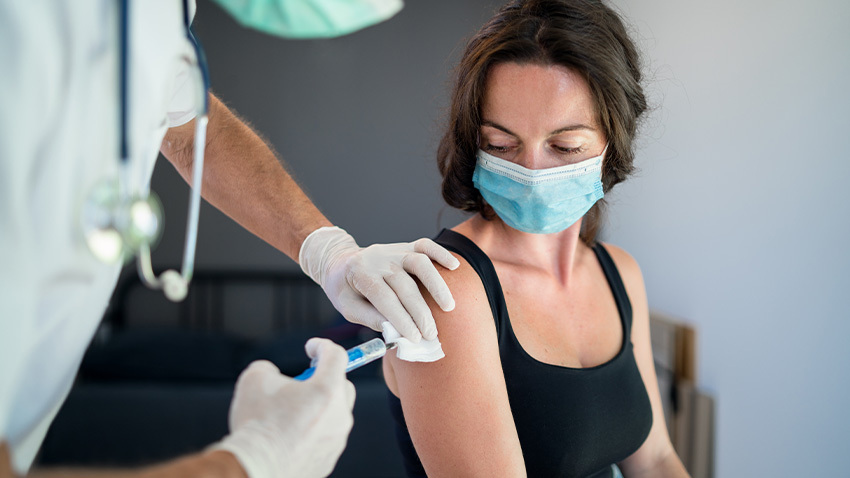Medicated weight loss jabs, also referred to as “skinny jabs” or “weight loss jabs” are a prescribed daily injection designed to aid a person’s weight loss journey. Initially piloted as a treatment for diabetes in 2014, the medicated weight jab was quickly found to be an effective form of weight loss at higher doses and has been available from private practices like SlimCare Medical in the UK for the past few years. That was until the COVID-19 Pandemic, which politicians claim served as a “wake-up call” to the obesity crisis in the UK, with a majority of adults being considered overweight or obese as of 2019. As such, on the 30th of October 2020 the weight loss drug liraglutide became officially available on the NHS in England.
Liraglutide, and other “skinny jabs” work by injecting a drug that is 97% similar to the naturally occurring hormone Glucagon-like peptide-1 (GLP-1). This hormone is used by the body to regulate our feelings of fullness and hunger, being released in small amounts naturally to signal to our minds that we should stop eating. Where the naturally occurring GLP-1 only lasts in the body for roughly two minutes, the injected dose lasts for roughly 13.5 hours, meaning a single jab a day is sufficient to ensure a maintained lack of hunger.
As a hormone that is commonly under-produced in people with obesity, the artificial injection can help people wishing to lose weight control their eating, and thus is recommended to be used in conjunction with traditional dieting. This allows the jab to enhance the effectiveness of traditional dieting, as the body is more willing to accept a smaller quantity of food as enough to feel full and satiated.
The core benefit of medicated weight jabs such as liraglutide is it’s simple and long-term design. With very few recorded side effects, most of which being purely gastrointestinal and of low impact on lifestyle, the so-called “skinny jab” can help people struggling with obesity establish a permanent dietary change. Clinical trials clearly show the health benefits of medicated weight jabs, as in a trial of 3,731 patients with obesity conducted in 2014, a considerable number of those given the jab experienced significant weight loss in comparison to the control group.
According to Professor Carel Le Roux, the drug will “reduce the complications of obesity and other diseases”, however the effectiveness of the medicated weight jab can vary from patient to patient as “patients have a one in three chance of responding biologically to the medication.” Despite this, for those who the jab is effective for, clinical trials have shown that “one in three people will lose more than 10% of their weight, or about two stone, and one in seven will lose 15% of their weight”, meaning medicated weight jabs show great promise for greatly reducing obesity rates and promoting a healthier lifestyle.
There are, however, some restrictions. Liraglutide will only be available on the NHS to people with a BMI of 35 over, and said patients must also have pre-diabetes and a high risk of cardiovascular disease to be eligible for the medicated weight jabs. While the new medicated weight jabs could revolutionise the fight against obesity, the NHS is clear that it is not the sole solution, and should be used to enhance dieting and general lifestyle changes in order to effectively lose weight.

